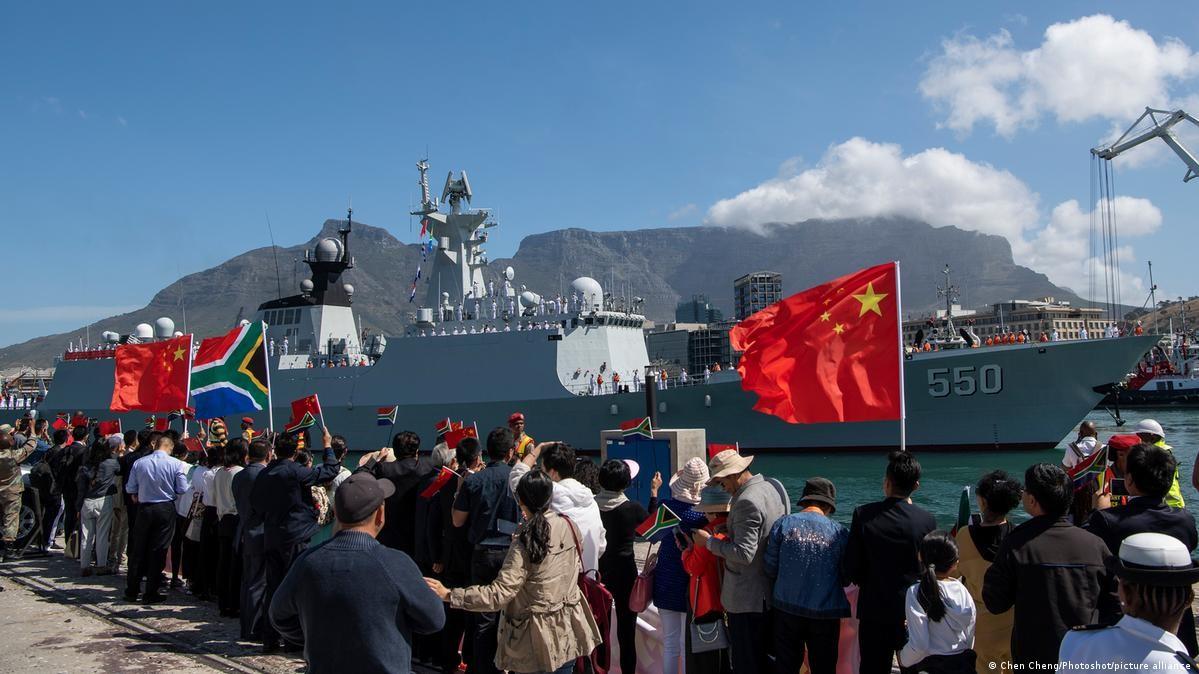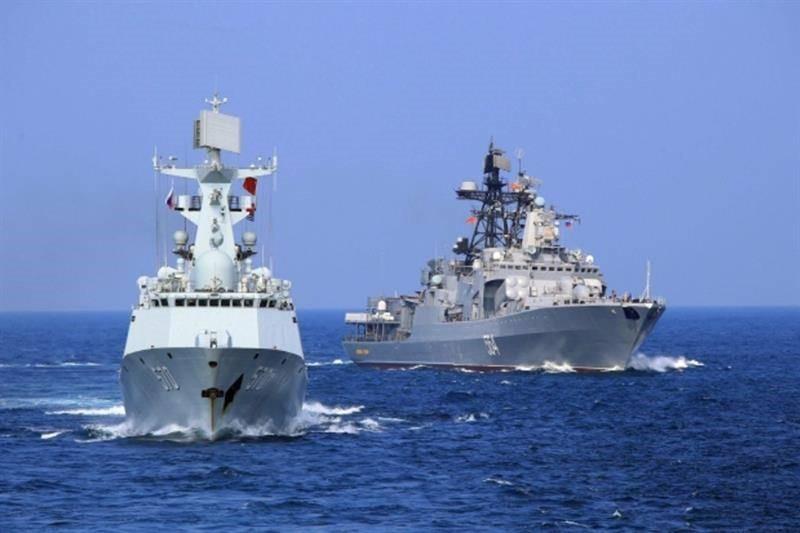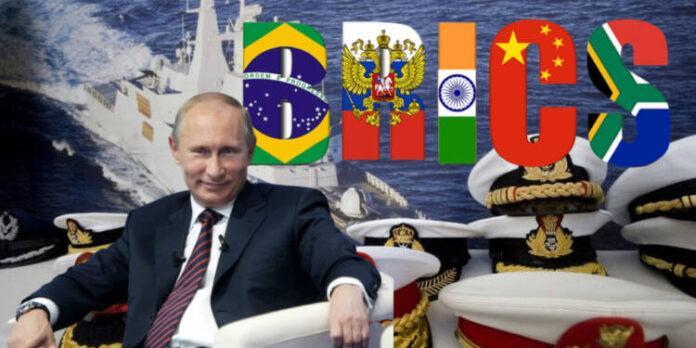The BRICS have made considerable strides in economic cooperation, yet the coalition has not been as successful in formulating and implementing an agenda of its own to address international security despite clear signs that the coalition wishes to promote cooperation in this area.
Security topics have begun to appear more frequently in key BRICS documents. For instance, in the declaration issued at the end of the Goa summit, held in 2016, the number of references to “security” and to “terrorism/terrorist” was comparable to the number of references to “economic”.
In addition, the national security advisors of the coalition’s member states have held a number of security meetings.
Yet, whereas in development cooperation the BRICS group has made a splash by launching the New Development Bank (NDB), in security there has been no equivalent landmark in the coalition’s institutionalization.
Despite the slow pace and fragmented character of this cooperation, any BRICS action in international security – even when confined to vague statements and informal policy coordination – has tended to ring alarm bells among some circles, especially when the coalition draws heavily on the discourse of national sovereignty.

Source- DW
And soon, Security may be an agenda in the BRICS mechanism. Recently, South Africa launched a joint naval exercise with Russia and China on 17th February, a move it is calling routine but which has fueled domestic criticism and fears the drills will endanger important relations with Western partners.
“These exercises are going to be a lightning rod,” said Steven Gruzd, of the South African Institute of International Affairs.
This can have major implications for the broader geopolitical world. Before getting into the nitty gritty of it, let us understand the comprehensive role that BRICS play.
Background:
In the first phase of the BRIC initiative, security clearly occupied a secondary status compared to economic issues, due in part to the economic turmoil that beset global markets starting in 2008.
The first two BRIC summits – those held in Yekaterinburg in 2009 and Brasília in 2010, both prior to the entrance of South Africa – were mostly concerned with countering the ongoing effects of the global ‘financial crisis’ and ensuring that G20 resolutions would be implemented. The only references to security in those years’ declarations appear within the context of food security, although the Brasilia declaration also makes a fleeting reference to the need to combat terrorism.

Source- Manila Bulletin
On the normative side, the BRICS also began to identify some shared principles, including a common respect for “the principle that the use of force should be avoided” and underscored that “the independence, sovereignty, unity and territorial integrity of each nation should be respected.
By the following year , 2012, when the BRICS summit was held in New Delhi, the word security was included in the summit’s theme itself: “BRICS Partnership for Global Stability, Security and Prosperity.” This remains, as of this writing, the only time the word security has appeared in any BRICS summit heading. Indeed, the New Delhi meeting proved to be something of a landmark in the inclusion of security in the BRICS agenda.
The inclusion of such topics reflects the still-tentative, exploratory nature of early BRICS discussions around international security on the sidelines of the main item on the coalition agenda: economic cooperation.
Significance and attempts of DeDollarisation:
Moreover, the BRICS countries had a common goal of overhauling the international financial and monetary systems, as well as a strong desire to create a more just and balanced international order. The BRICS community plays a critical role in setting global economic policy and promoting financial stability, accounting for 17% of global trade and one-third of global GDP.
The BRICS countries have made significant contributions to global poverty alleviation. Continued BRICS growth is critical for poverty reduction and decreasing international disparities. Through poverty alleviation and unwavering efforts to bridge inequities, BRICS has recently emerged as the voice of developing countries, or the global South, and has played an essential role in defending the rights of the developing countries of the world.
In fact, there is a significant likelihood that BRICS may grow into a strong bloc given that Saudi Arabia, Argentina, and Iran have lately expressed an interest to join it.
In his recent address to the BRICS Business Forum, Russian President Vladimir Putin stated that the minilateral member states were working on developing a new global reserve currency. It is presumed that this global reserve currency, containing the national currencies of the BRICS member states, will be an alternative to the International Monetary Fund’s Special Drawing Right (SDR). At a time when Russia is facing unprecedented global sanctions in the wake of the Ukraine invasion, Putin’s announcement has underscored the importance of recognizing the heterogeneous motives of the BRICS nations to not only facilitate intra-BRICS trade in local currencies, but also firewall their global financial interests.
Whilst Russia and China are leading de-dollarisation initiatives due to their geopolitical rivalry with the US, India, Brazil, and South Africa have supported BRICS’ statements on altering the global financial system for their own interests.
Sino-Indian clash:
As we have previously explained, the relations between India and China have been based upon discernments for a really long time. India and China went into war with each other back in 1962 in the aftermath of the Aksai Chin dispute. Since then, several border disputes have concerned India and China.
While the case with previous Indian governments was to cede territory and demands of China, with Prime Minister Narendra Modi, that’s not the case. The Indian government at present puts national border and security at utmost priority.
The relations started to get bitter between Modi and Xi back in 2017, during the Doklam standoff. The dispute over Chinese road construction in Doklam, close to the triangular border region known in Chinese as Donglang, shook the world, eventually, China suffered a setback and had to back off.
Still, the trade and other businesses between the nations carried on. Then in 2020, a major military confrontation in Ladakh happened, after which ties between India and China took a major toll. Despite numerous meetings between military leaders on the ground and diplomatic communications, the relationship is still in a deep freeze.
There will be no shift in relations between the Asian powers until Xi Jinping is in office in China. If the CCP maintains its hardline position towards India, the future of the BRICS remains gloomy.
If a new leader is elected in China and the CCP finally changes its posture towards India, the core group of the RIC would be stronger than any significant coalition in the world.
Compared to development cooperation, which has emerged as the clearest path of least resistance in BRICS agenda-setting during the group’s first decade of existence, international security has proven more elusive.
On the one hand, some advances can be noted and must be understood in light of the
BRICS coalition being a relatively recent creation composed of countries that are still “getting to know one another.” In terms of coalition institutionalization, security has become a more common topic of discussion at BRICS meetings, including the annual head of state summits and ministerial-level meetings, such as those of the national security advisors.
On the other hand, these discussions have mostly entailed efforts to coordinate general positions on specific conflicts and issues, with only incipient discussions of how to coordinate policies or implement joint action.
The comparatively fragmented nature of this coordination can be understood in light of the internal and external constraints on intra-BRICS collaboration in security, including the lack of a shared spatial interest, asymmetries in influence and status and differing geopolitical concerns. If addressed these contradictions, BRICS could become one of the most potent tools in the geopolitical space.
Now with Russia taking interest in increasing its military presence and influence within the BRICS bloc, things are changing. This recent joint military exercise and Russia’s constant military support to South Africa, are signs of Russia’s brazen militarization. With this, it is clear that the Kremlin has ambitions to transform this economic bloc to a military bloc as well. However, this militarization ambition also highlights the complex geopolitical dynamics at play within the BRICS bloc. As the world continues to shift and evolve, it will be interesting to see how this militarization plays out and what impact it will have on the future of the BRICS countries and their relations with the rest of the world.
❖
Comment:
BRICS will change the world order that is what the U.S. & the E.U. is scared of…. becoming 2nd world countries. Going from US unipolar planetary hegemony to a multipolar world would be a good thing, for the world is tired of the empire’s imperialist wars and the resulting impoverishment of the masses and desperately wants peace and prosperity.






